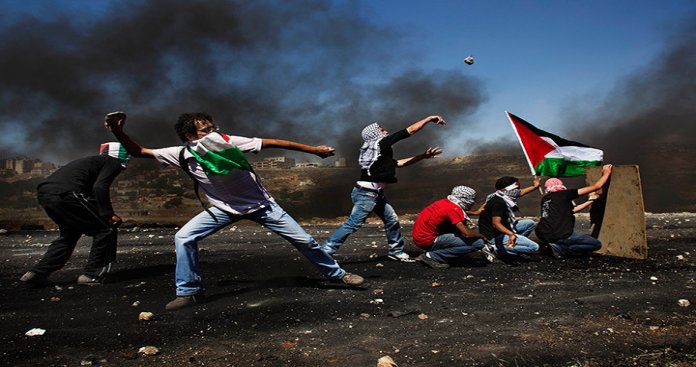On December 8, 1987, an Israeli settler identified as Herzel Boukiza rammed his vehicle into Palestinian workers returning home through Erez/Beit Hanoun checkpoint between Israel and Gaza. Four workers from Jabalya and Maghazi in Gaza were killed.
The next day, and following the funerals of the four, angry Palestinians took to the streets in Jabalya to protest the premeditated attack. The protests then quickly spread to the rest of the Gaza Strip and the West Bank where thousands of Palestinians took to the streets and engaged the heavily armed Israeli soldiers with stones in what has become to be known as the stones uprising or Intifada.
After six years of daily confrontations and Israeli army breaking bones and killing of Palestinians, a total of 1550 Palestinians were killed, over 70,000 injured more than half of them suffered permanent disabilities, between 100,000 to 200,000 were detained, among them over 18,000 were held under administrative detention for long periods of time without charge or trial.
The stones Intifada came to a halt only after the signing of the Palestinian-Israeli Oslo accords in September 1993 that created the Palestinian Authority and allowed thousands of Diaspora Palestinians to return home for the first time since they were forced out of Palestine in 1948.



